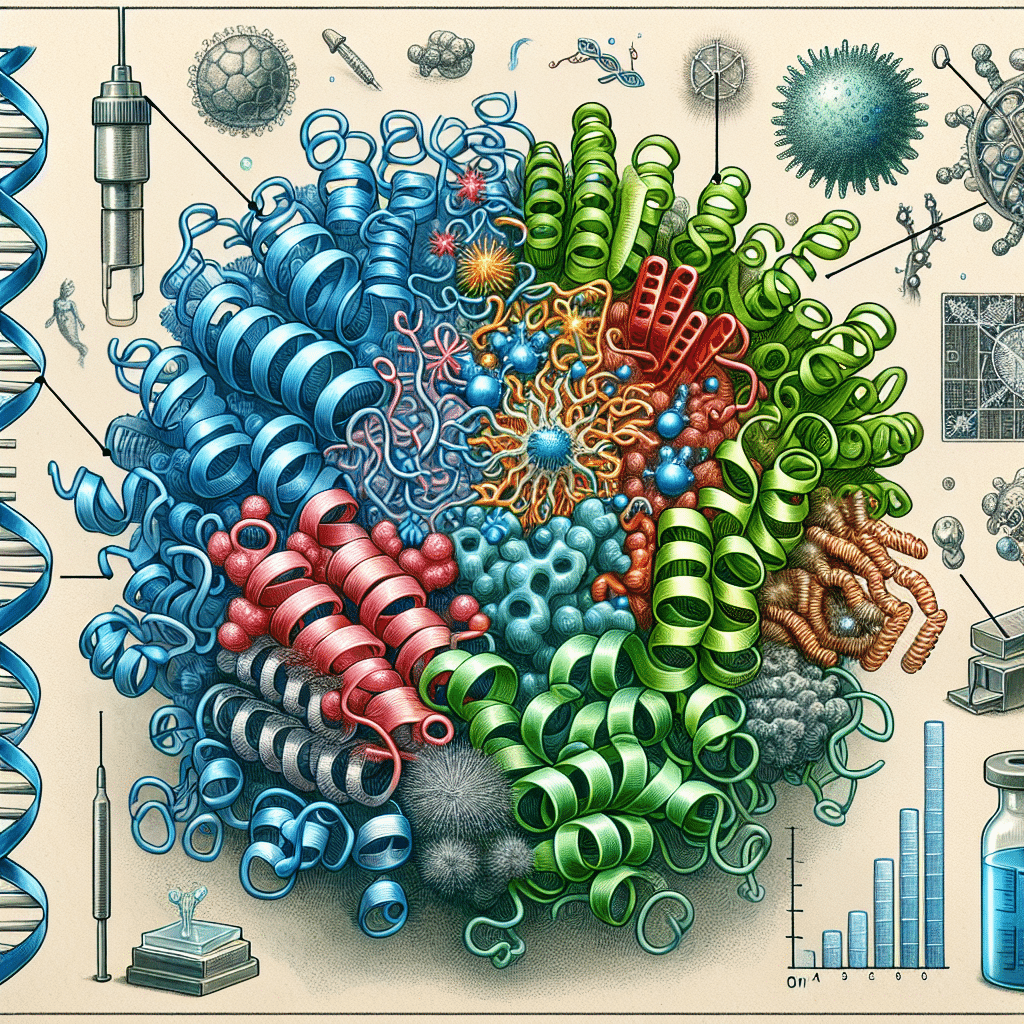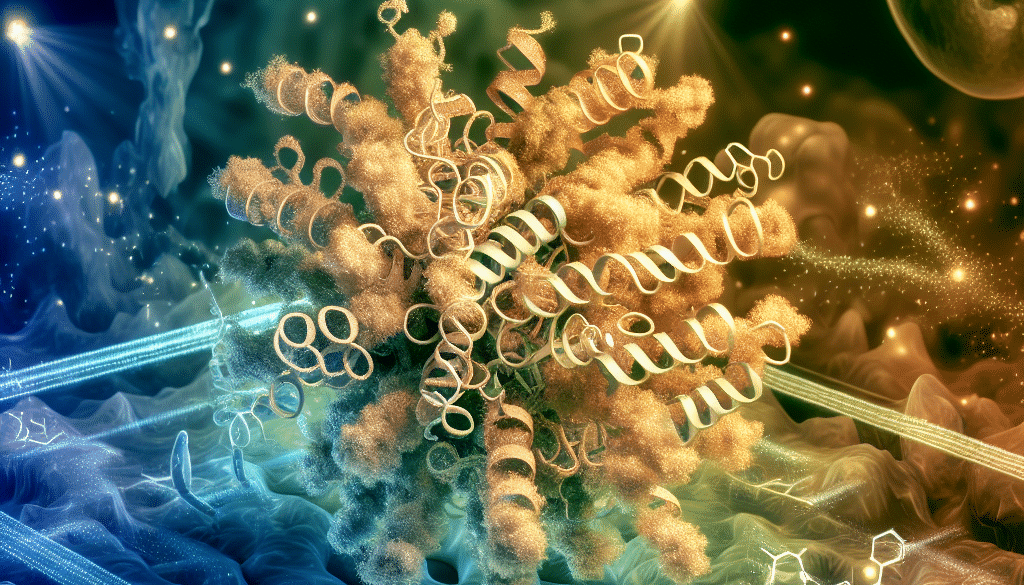Native Protein: Understanding Its Importance
-
Table of Contents
- Native Protein: Exploring Its Crucial Role in Biological Functions
- What Are Native Proteins?
- The Importance of Protein Folding
- Native Proteins in Biological Processes
- Case Studies and Examples
- Technological Applications
- Challenges in Studying Native Proteins
- Conclusion: The Pivotal Role of Native Proteins
- Discover High-Quality Proteins with ETprotein
Native Protein: Exploring Its Crucial Role in Biological Functions

Proteins are the workhorses of the cell, performing a vast array of functions essential for life. Among the different forms of proteins, native proteins hold a special place due to their functional configurations. Understanding the importance of native proteins is not just an academic exercise; it has practical implications in fields ranging from medicine to biotechnology. In this article, we delve into the world of native proteins, exploring their structure, function, and significance in various biological processes.
What Are Native Proteins?
Native proteins are proteins found in living organisms that are properly folded and functional. They have a specific three-dimensional structure, which is crucial for their biological activity. This structure is determined by the unique sequence of amino acids that make up the protein, and it is maintained by various types of chemical bonds and interactions. The native conformation allows proteins to interact with other molecules with high specificity, which is essential for carrying out their roles within the cell.
The Importance of Protein Folding
Protein folding is the process by which a protein acquires its native three-dimensional structure. It is a highly complex and regulated process that is crucial for protein function. Improperly folded proteins can lead to loss of function and are often associated with diseases such as Alzheimer’s, Parkinson’s, and cystic fibrosis. The study of protein folding is not only important for understanding these diseases but also for the development of therapeutic strategies to treat them.
Native Proteins in Biological Processes
Native proteins are involved in virtually every process within a living organism. Here are some key roles they play:
- Enzymatic Activity: Many native proteins are enzymes that catalyze biochemical reactions, which are essential for metabolism and other cellular processes.
- Structural Support: Structural proteins provide support and shape to cells and tissues. Collagen, for example, is a key component of connective tissue.
- Transport and Storage: Proteins like hemoglobin transport oxygen in the blood, while others store essential nutrients.
- Signaling: Receptor proteins on cell surfaces receive signals from the environment, which can trigger an internal cellular response.
- Immune Response: Antibodies are proteins that recognize and neutralize foreign invaders like bacteria and viruses.
- Movement: Motor proteins like myosin in muscle fibers are responsible for muscle contraction and movement.
Case Studies and Examples
One of the most famous examples of the importance of native protein structure is the prion protein. In its normal conformation, the prion protein is harmless. However, when it misfolds into an abnormal shape, it can cause a chain reaction leading to neurodegenerative diseases like Creutzfeldt-Jakob disease. This case highlights the critical importance of maintaining the native conformation of proteins.
Another example is the development of insulin for the treatment of diabetes. Insulin is a protein hormone that regulates blood sugar levels. Recombinant DNA technology has allowed for the production of human insulin in bacteria. However, for this insulin to be effective, it must fold into its native structure, which is identical to that produced by the human pancreas.
Technological Applications
The understanding of native proteins has led to advancements in various technologies:
- Drug Design: Knowledge of a protein’s native structure can aid in the design of drugs that specifically target that protein.
- Biotechnology: Engineered proteins with novel properties can be created for industrial applications, such as enzymes for biofuels or detergents.
- Food Industry: Proteins are used as additives to improve the texture and nutritional value of food products.
Challenges in Studying Native Proteins
Despite their importance, studying native proteins presents several challenges. Proteins can be difficult to isolate in their native form, and they may be unstable outside of their natural environment. Additionally, determining the three-dimensional structure of a protein can be a complex and time-consuming process, often requiring techniques like X-ray crystallography or nuclear magnetic resonance (NMR) spectroscopy.
Conclusion: The Pivotal Role of Native Proteins
In conclusion, native proteins are fundamental to the functioning of all living organisms. Their specific three-dimensional structures enable them to perform a wide range of biological activities that are essential for life. The study of native proteins not only enhances our understanding of biological processes but also has practical applications in medicine, biotechnology, and other industries. As research continues to unravel the mysteries of protein folding and function, we can expect to see further innovations and therapeutic breakthroughs.
Discover High-Quality Proteins with ETprotein
If you’re in search of premium protein products, ETprotein offers an extensive selection of plant-based proteins that cater to various industries. Their commitment to quality, non-GMO, and allergen-free products ensures that you receive the best ingredients for your nutritional supplements, food and beverage products, and more. Explore ETprotein’s offerings and experience the benefits of their organic and clear protein solutions.
About ETprotein:
ETprotein, a reputable plant protein vegan protein Chinese factory manufacturer and supplier, is renowned for producing, stocking, exporting, and delivering the highest quality organic bulk vegan protein and plant proteins. They include Organic rice protein, clear rice protein, pea protein, clear pea protein, watermelon seed protein, pumpkin seed protein, sunflower seed protein, mung bean protein, peanut protein etc. Their offerings, characterized by a neutral taste, non-GMO, allergen-free attributes, cater to a diverse range of industries. They serve nutraceutical, pharmaceutical, cosmeceutical, veterinary, as well as food and beverage finished product distributors, traders, and manufacturers across Europe, USA, Canada, Australia, Thailand, Japan, Korea, Brazil, and Chile, among others.
ETprotein specialization includes exporting and delivering tailor-made protein powder and finished nutritional supplements. Their extensive product range covers sectors like Food and Beverage, Sports Nutrition, Weight Management, Dietary Supplements, Health and Wellness Products, and Infant Formula, ensuring comprehensive solutions to meet all your protein needs.
As a trusted company by leading global food and beverage brands and Fortune 500 companies, ETprotein reinforces China’s reputation in the global arena. For more information or to sample their products, please contact them and email sales(at)ETprotein.com today.














